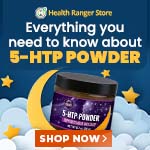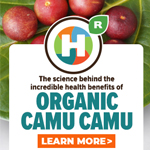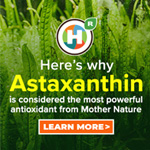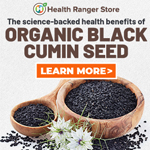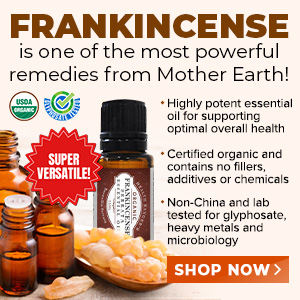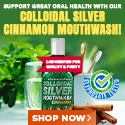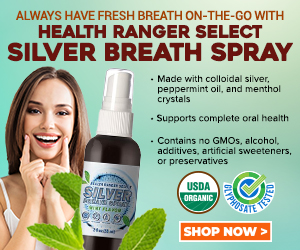
Decaffeinated coffee still contains caffeine, researchers report
Wednesday, October 11, 2006 by: Jessica Fraser
Tags: coffee, caffeine, caffeine addiction
- TAKE IT DOWN Act advances in Congress amid free speech concerns
- Gardening tips: 15 Simple tricks to double your garden’s yield this season
- Survival 101: Dangerous places to avoid when disaster strikes
- Nature’s arsenal: How plant compounds power military survival and healthcare in crisis
- Kawasaki unveils rideable ROBOT HORSE powered by hydrogen
- Amazon's Kuiper satellite launch delay highlights uphill battle against Musk's Starlink
- DOJ and ATF kill Biden’s “Zero Tolerance” firearms dealer policy
- Hospital staffers sound alarm after 10 nurses were diagnosed with BRAIN TUMORS
- Criminal referral requests filed against Fauci and top COVID officials in seven states
- “Prepare Tribe: Prepare, Protect, Provide” on BrightU: How to build a disaster-proof shelter in the middle of nowhere
- Barley: A nutrient-dense ancient grain with modern benefits
- Germany prepares students for war amid growing security concerns
- New studies ignite debate: Fluoride linked to autism and ADHD, prompting calls for policy reassessment
- Rafael Medoff explores the role of Jabotinsky in the rise of Revisionist Zionism in “Militant Zionism in America”
- Sovereign debt paradox: U.S.-China mutual holdings fuel geopolitical tensions
- Yoga and autism: A science-backed look at how a simple practice is transforming behavior and movement in children with ASD
- POLL: U.S. support for Israel drops to lowest level in decades amid Gaza War
- Trump escalates tariffs to 145% on Chinese goods amid fentanyl crisis, escalating trade tensions
- Tulsi Gabbard leads charge against the Biden regime’s global censorship of the 'Disinformation Dozen'
- Fauci is back in the limelight, and he’s busy promoting a future COVID or FLU pandemic
- Aerosolized bioweapons? Strange “diploid biomasses” falling out of the sky in Florida captured under the microscope
- Analysis: The coming economic collapse, a mass uprising and Trump's three secret weapons to halt the growing revolt
- Widespread social and economic unrest: Steve Quayle issues urgent financial warning of imminent asset collapse in new interview with Mike Adams
- Kiss Your Genetic Privacy Good-Bye! 23andMe Gets Green Light to Sell Your Intimate Genetic Details to Anyone They Want
- Tulsi Gabbard takes aim at censorship: Justice for the ‘Disinformation Dozen’
- Mike Adams releases country western hit single: Goin’ Back in Time is Comin’ Home
- U.S. lawmakers investigate Meta over alleged China collaboration
- CLOT SHOT PLANDEMIC UNFOLDING: Fibrous, rubbery clots caused by covid injections have prion-like seeding activity
- Chemtrails unveiled: How the CIA and Big Business are manipulating the weather for profit
- How Israeli military-connected corporations are secretly controlling your online privacy
- European Court of Justice: Healthcare professionals who promoted or administered COVID-19 vaccines are CRIMINALLY LIABLE for any harm caused
- DEATH by VACCINE or face PRISON time: Canadian Freedom Convoy leaders CONVICTED for protesting forced vaccination during the Covid Plandemic
- Defunding DEADLY mRNA jabs: Government funding for mRNA technology being scrutinized and sidelined until proven "safe and effective" for real
- Federal employees whine over DOGE's new directive requiring them to do a 5-point summary of weekly accomplishments
- U.S. approves new Russian ambassador as diplomatic thaw continues
- Curcumin’s ancient healing power supercharges muscle recovery, and its effects are compounded with anti-inflammatory foods and supplements
- Newly released JFK files reveal Pentagon's role in creating Lyme disease and covid in the same lab
- Analysis: The coming economic collapse, a mass uprising and Trump's three secret weapons to halt the growing revolt
- Mike Adams releases country western hit single: Goin’ Back in Time is Comin’ Home
- Aerosolized bioweapons? Strange “diploid biomasses” falling out of the sky in Florida captured under the microscope
- Kiss Your Genetic Privacy Good-Bye! 23andMe Gets Green Light to Sell Your Intimate Genetic Details to Anyone They Want
- Dr. Mike Yeadon releases 15-minute testimony - WATCH - about genocidal intent of COVID “vaccines”
- Trump reverses course on Gaza plan, says “nobody is expelling Palestinians”
- MEDICAL BOMBSHELL: FDA admits Covid mRNA 'Vaccines' CAUSE CANCER
- European Court of Justice: Healthcare professionals who promoted or administered COVID-19 vaccines are CRIMINALLY LIABLE for any harm caused
- The Health Ranger releases “Vaccine Zombie” song and music video, using AI-animated zombies for the music video
- 5 Simple steps to boost your brainpower: How to strengthen executive function in a distracted world
- A lack of integrity in Academia: Harvard professor found GUILTY of fraudulent research to promote CRT theory
- Federal employees whine over DOGE's new directive requiring them to do a 5-point summary of weekly accomplishments
- EPA advisor admits the agency is funneling billions to climate groups ahead of Trump’s return to White House
- California's social media censorship law struck down: A victory for free speech or a threat to online safety?
- Space war brewing? Russia threatens to destroy Starlink satellites
- Survival 101: Effective EMF blocking techniques
- Rep. Nancy Mace introduces bill to ban biological males from female facilities on federal property
- Red Cross issues warning to stop blood plasma donations from vaccinated people
- Scientists confirm: GENIUS brain function can be spontaneously unleashed in humans without any apparent cause
- EPA advisor admits the agency is funneling billions to climate groups ahead of Trump’s return to White House
- HYSSOP: What research reveals about the health benefits of this ancient holy herb
- Two containers with completed ballots fall out of truck in Florida
- Newly released JFK files reveal Pentagon's role in creating Lyme disease and covid in the same lab
- Global leaders unite to clamp down on “misinformation” with UN-backed Cascais Declaration
- BREAKING: 2025 NDAA authorizes mandatory military draft of WOMEN across America… as Pentagon pursues global NUCLEAR war with both Russia and China at the same time
- Michael Yon warns of a ZIONIST TAKEOVER in Trump’s second administration
- Ozempic and Wegovy weight loss drugs are injectable LIZARD VENOM PEPTIDES that may unleash a devastating wave of organ failure… side effects align with symptoms of SNAKE BITES
- The Health Ranger releases “Vaccine Zombie” song and music video, using AI-animated zombies for the music video
- Mike Adams releases country western hit single: Goin’ Back in Time is Comin’ Home
- BOMBSHELL: DNA testing kits are a SCAM to develop ethnic-specific bioweapons
- Israeli soldiers accused of even more torture and abuse in the West Bank
- These 13 countries just signed an agreement to engineer a global FAMINE by destroying food supply
- NASA admits that climate change occurs because of changes in Earth’s solar orbit, and NOT because of SUVs and fossil fuels
- Fully vaccinated about to see “tsunami” of illness and death, warns virologist
- RFK Jr. clears key hurdle: Sen. Susan Collins backs controversial HHS nominee, signaling a new era for health policy
Researchers from the University of Florida examined 10 16-ounce decaffeinated drip-brewed coffees from nine local coffee houses or national chains for caffeine content using gas chromatography. The researchers found that every serving of coffee but one -- instant decaffeinated Folgers Coffee Crystals -- contained caffeine.
While a regular 8-ounce cup of brewed coffee usually contains 85 milligrams of caffeine, the researchers found that the brands of caffeine-containing decaf had caffeine ranging from 8.6 milligrams to 13.9 milligrams.
During the second phase of the study, the researchers analyzed 12 samples of Starbucks decaffeinated espresso and brewed decaf coffee purchased from a single store. The decaf espresso drinks contained 3 to 15.8 milligrams of caffeine per shot, while the brewed decaf coffees contained 12 to 13.4 milligrams of caffeine per 16-ounce serving.
"If someone drank five to 10 cups of decaffeinated coffee, the dose of caffeine could easily reach the level present in a cup or two of caffeinated coffee," said the study's co-author Dr. Bruce Goldberger, director of UF's William R. Maples Center for Forensic Medicine. "This could be a concern for people who are advised to cut their caffeine intake, such as those with kidney disease or anxiety disorders."
Co-author Dr. Mark S. Gold, professor of psychiatry, neuroscience and community health and family medicine at the UF College of Medicine, said that although the concentrations of caffeine in decaf coffee drinks is relatively low, some people could develop a physical dependence on the beverages.
Consumer advocate Mike Adams, author of "Grocery Warning," called decaffeinated coffee beverage claims a "sham."
According to Adams, "Decaffeinated coffees are not decaffeinated beverages; they are actually reduced-caffeine beverages that still contain caffeine. In addition, they may also contain trace amounts of cancer-causing chemical solvents used in the decaffeination process."
"Carefully controlled studies show that caffeine doses as low as about 10 milligrams can produce reliable subjective and behavioral effects in sensitive individuals," said Dr. Roland Griffiths of Johns Hopkins School of Medicine. "The important point is that decaffeinated is not the same as caffeine-free."
###
Coffee at FETCH.news
Get independent news alerts on natural cures, food lab tests, cannabis medicine, science, robotics, drones, privacy and more.
Take Action: Support Natural News by linking to this article from your website
Permalink to this article:
Embed article link: (copy HTML code below):
Reprinting this article:
Non-commercial use OK, cite NaturalNews.com with clickable link.
Follow Natural News on Facebook, Twitter, Google Plus, and Pinterest
Science News & Studies
Medicine News and Information
Food News & Studies
Health News & Studies
Herbs News & Information
Pollution News & Studies
Cancer News & Studies
Climate News & Studies
Survival News & Information
Gear News & Information
News covering technology, stocks, hackers, and more



"Big Tech and mainstream media are constantly trying to silence the independent voices that dare to bring you the truth about toxic food ingredients, dangerous medications and the failed, fraudulent science of the profit-driven medical establishment.
Email is one of the best ways to make sure you stay informed, without the censorship of the tech giants (Google, Apple, Facebook, Twitter, YouTube, etc.). Stay informed and you'll even likely learn information that may help save your own life."
–The Health Ranger, Mike Adams














